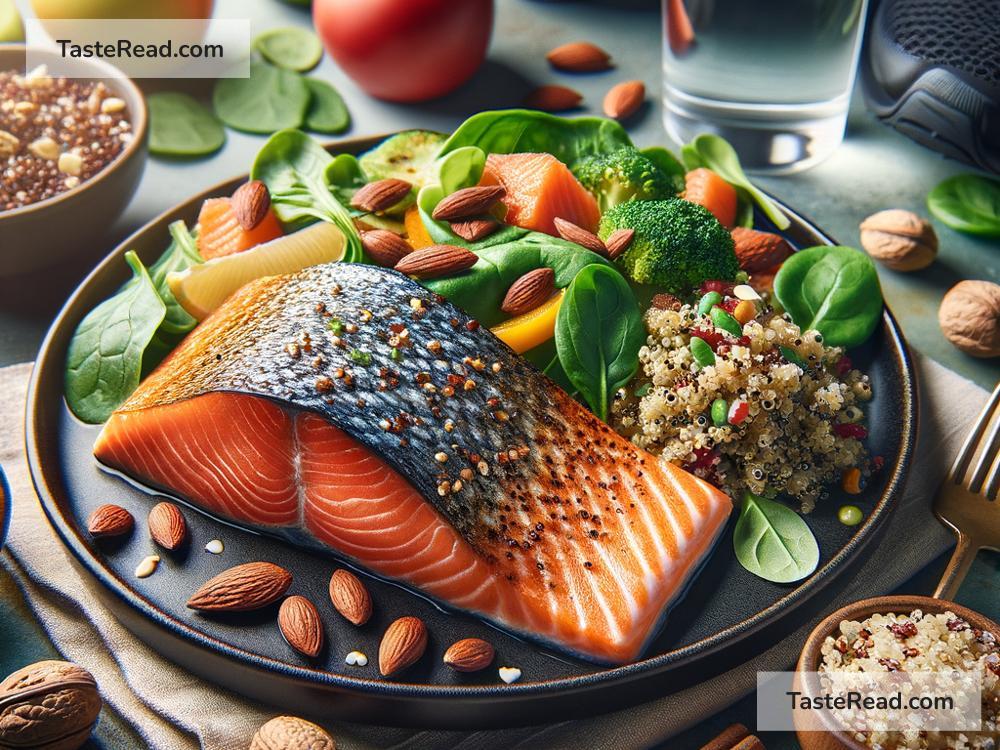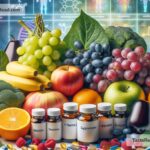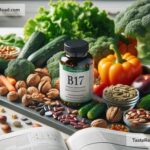The Role of Vitamin B12 in Metabolic Health
When we talk about our health, vitamins often take center stage because they play crucial roles in keeping our body functioning properly. Among them, Vitamin B12 is like a superhero for metabolic health. But what does Vitamin B12 actually do? Why is it important? And how can you make sure you’re getting enough? In this article, we’ll explore the fascinating role Vitamin B12 plays in metabolism—and how you can take steps to optimize your health.
What Is Vitamin B12?
Vitamin B12, also known as cobalamin, is a water-soluble vitamin. This means it dissolves in water and travels through the bloodstream. Unlike some vitamins that your body can make on its own, Vitamin B12 must come from the food you eat.
Vitamin B12 is found naturally in animal-based foods such as meat, fish, eggs, milk, and dairy products. If you’re vegan or eat very little animal food, it’s more difficult to get Vitamin B12, and you might need supplements or fortified foods like cereal.
Why Is Vitamin B12 Important for Metabolic Health?
You may hear the word “metabolism” and think about burning calories. But metabolism is much more than that—it involves the chemical reactions your body needs to stay alive. These reactions help convert food into energy, break down fats and proteins, and keep your cells working properly.
Let’s dive into how Vitamin B12 ties into this.
1. Helps Your Body Produce Energy
One of Vitamin B12’s main jobs is helping turn the food you eat into energy. It plays a key role in how your body uses fats and carbohydrates. Think of it as one of the gears in a machine—it keeps everything moving smoothly.
When you don’t have enough Vitamin B12, this energy-production process can slow down. As a result, you might feel tired and fatigued, even if you’re eating enough calories.
2. Supports Red Blood Cell Production
Another job of Vitamin B12 is to help make red blood cells, which carry oxygen to every part of your body. Without enough oxygen, your cells can’t produce energy efficiently. This means that a Vitamin B12 deficiency can lead to anemia—a condition that makes you feel weak and exhausted because your blood can’t carry enough oxygen.
3. Protects Nerves and Brain Health
Vitamin B12 also helps keep your nervous system healthy. It’s involved in making a substance called myelin that coats and protects your nerves. Without sufficient Vitamin B12, your nerves can become damaged, leading to problems like numbness, tingling, and difficulty thinking clearly.
In fact, people with low levels of Vitamin B12 are more prone to memory problems and mood disorders like depression and anxiety. This is why B12 is so essential—not just for your physical health, but for your mental well-being too.
4. Breaks Down Amino Acids
Vitamin B12 helps your body break down amino acids, the building blocks of proteins. One specific amino acid, homocysteine, can build up in your body if Vitamin B12 levels are too low. High levels of homocysteine are linked to heart disease and poor circulation. By breaking down homocysteine, Vitamin B12 can support a healthy heart and blood flow.
Signs You May Be Low on Vitamin B12
It’s easy to overlook a Vitamin B12 deficiency because the symptoms can be vague and show up slowly over time. Here are some common signs:
- Fatigue or general weakness
- Pale or yellowish skin
- Nerve problems like tingling or numbness
- Brain fog or difficulty concentrating
- Mood changes, such as depression or irritability
- Shortness of breath or dizziness
- A swollen or sore tongue
If you notice these symptoms and suspect a deficiency, it’s important to talk to your doctor. They might recommend a blood test and advise you on the best way to increase your Vitamin B12 levels.
How to Get Enough Vitamin B12
Food Sources
Most people get enough Vitamin B12 through food, as it’s naturally found in animal products:
- Beef liver and clams are some of the richest sources.
- Other good options include fish (like salmon and tuna), eggs, milk, and dairy products.
- Fortified foods like breakfast cereals and plant-based milks can be excellent sources for vegans and vegetarians.
Supplements
If you have trouble getting enough Vitamin B12 from food—or your body has a harder time absorbing it as you age—supplements can help. Vitamin B12 is available as pills, sublingual tablets (dissolved under the tongue), and even as injections for people with severe deficiencies.
Fortified Foods for Vegans
Since plant foods don’t naturally contain B12, vegans and vegetarians should look for fortified food options like nutritional yeast, plant-based milks, and cereals.
Who Is At Risk for Vitamin B12 Deficiency?
While Vitamin B12 is widely available through food, some groups of people are more likely to have low levels:
- Older Adults: As we age, our bodies may have a harder time absorbing Vitamin B12. Sometimes a condition called atrophic gastritis reduces stomach acid, making it difficult to extract B12 from food.
- Vegans and Vegetarians: Since Vitamin B12 is mostly found in animal-based foods, people on plant-only diets are at higher risk.
- People with Digestive Disorders: Conditions like Crohn’s disease, celiac disease, or surgeries involving the stomach can interfere with Vitamin B12 absorption.
The Bottom Line
Vitamin B12 is a key player in keeping your metabolism—and your whole body—functioning at its best. It helps your body produce energy, protects your nerves, supports brain health, and ensures your heart stays healthy.
The good news is that deficiencies can often be prevented with a balanced diet that includes sources of Vitamin B12, fortified foods, or supplements when needed. If you suspect you’re not getting enough, don’t hesitate to talk to your healthcare provider. You deserve to feel your best!
By understanding the role of Vitamin B12 in metabolic health, you can take another step toward a healthier, more energetic life. Don’t underestimate the power of this tiny nutrient—it’s one of the building blocks for your overall wellness.


